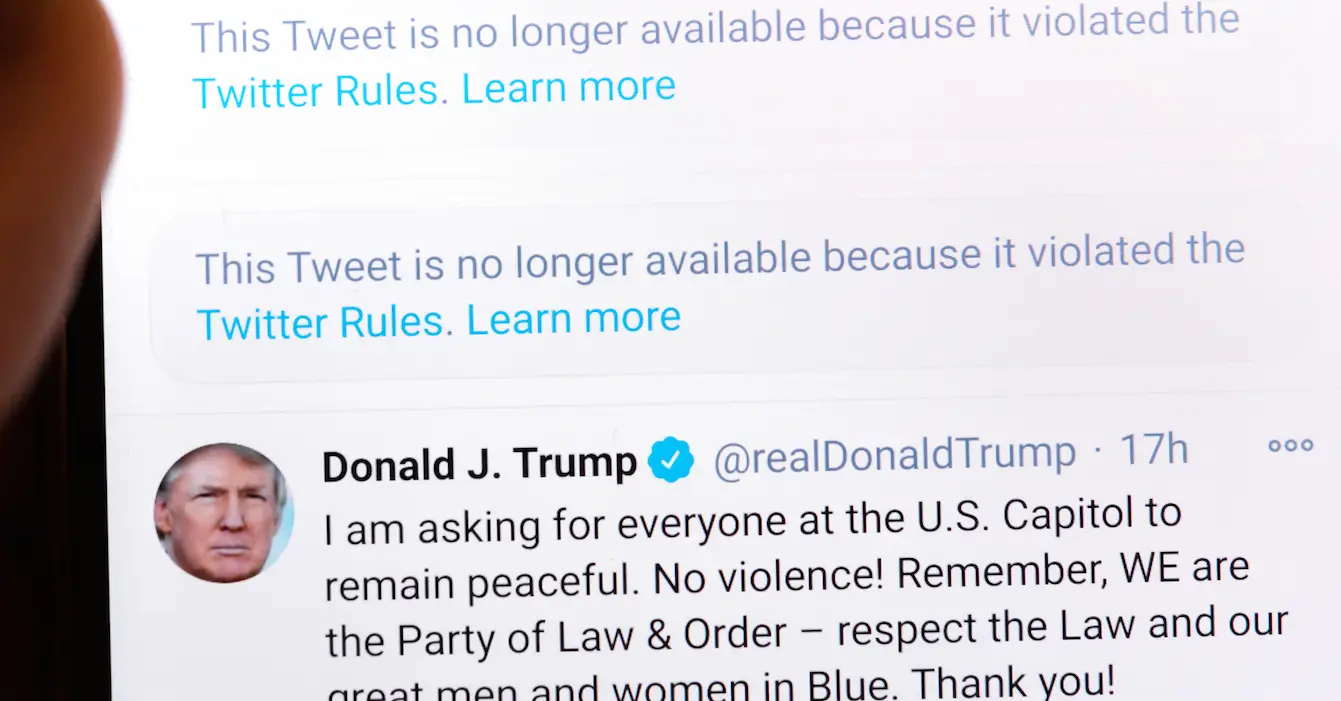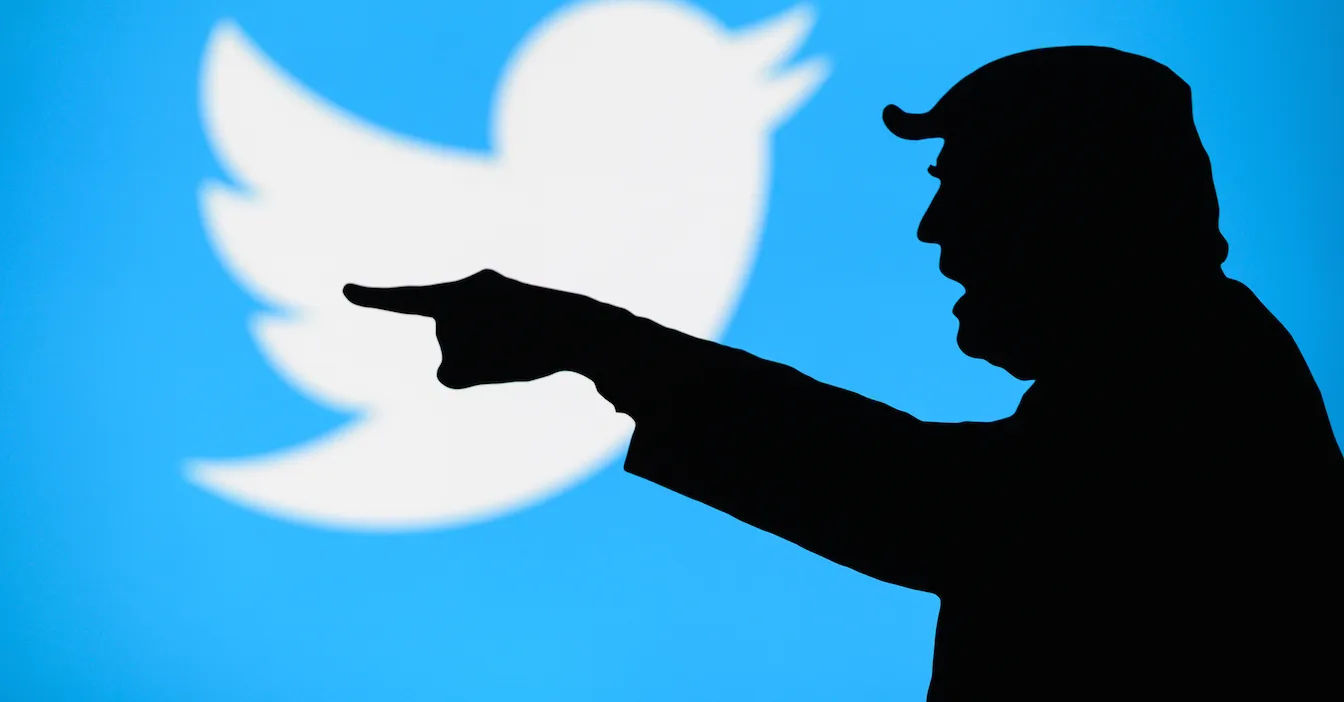The irony is this: If Donald Trump still had access to Twitter, his fight to reclaim his account and its 89 million followers would probably be the subject of an epic post-presidential tweetstorm.
Instead, it has been largely limited to the more reserved – some might say staid – language of legal briefings in U.S. District Court in Miami, the most recent of which asked a judge to force Twitter and CEO Jack Dorsey to allow Trump to resume using the platform’s services.
The social media giant permanently banned the former president 12 days before the end of his term and just two days after a crowd of his supporters broke into the U.S. Capitol, interrupting Congressional certification of an election Trump lost to his Democratic rival, Joe Biden.
While the prohibition followed years of controversy over the Republican chief executive’s tweets – which included bragging that U.S. nuclear capabilities far surpassed those of a frequently-hostile North Korea, belittling political rivals and spreading medically disputed information about COVID-19 – Trump has nonetheless accused Twitter of politically-motivated malpractice.
In separate federal suits filed in Florida against the San Francisco-based company and rivals Facebook and YouTube, all of which seek restoration of his accounts, he claims the social media firms violated the First Amendment’s free speech guarantee by silencing conservative opinions.
The censorship claim, which isn’t new for either Trump or his Congressional supporters, has been refuted repeatedly by legal scholars who point out the First Amendment bars government – not individuals or businesses – from impeding free speech.
Government collusion claim
The lawsuits and the injunction request in the Twitter case turn fresher ground, however, by attempting to link the shutdown of Trump’s accounts to pressure from the government: Democratic lawmakers at first and, later, the Biden administration.
“While government officials are permitted to express their, or the government’s, preferences about what a private company should or should not do, they cannot exert coercive pressure on private parties to censor the speech of others,” attorneys Matthew Baldwin and Carlos Trujillo of Vargas Gonzalez Baldwin Delombard argue in the injunction request.
A spokeswoman for Twitter declined to comment on the matter.
To back up the claim, Trump’s attorneys cited actions including House Speaker Nancy Pelosi’s statement in April 2019 that lawmakers might consider repealing Section 230 of the Communications Decency Act of 1996, which enabled the rise of social media companies by insulating Internet platform hosts from legal liability for comments posted by third-party users.
At the time, Democrats had just recaptured their majority in the House of Representatives, and Congress was reviewing the role social media had played in Russian attempts to influence the 2016 election as well as its use by a gunman responsible for the shooting deaths of 51 people at two New Zealand mosques.
“For the privilege of 230, there has to be a bigger sense of responsibility on it,” Pelosi said.
What Trump says was government coercion continued, his attorneys wrote, in early October 2020 when the House Judiciary Committee determined “social media companies had monopoly power in their markets and proposed breaking up those companies.”
2022 Election Fallout
Either course of action by Congress might prove devastating to the industry, and when government officials exert that kind of pressure, “state action exists regardless of whether the officials’ threat ‘was the real motivating force’ behind the private party’s conduct,” Trump’s attorneys said.
The link remains even if the private party ‘would have acted as he did independently,’ they added, making Twitter’s censorship “an unconstitutional deprivation” of Trump’s right to free speech.
Not only were his personal rights compromised, “censoring the 45th president of the United States, the leader of the Republican Party, will have an adverse and unknowable effect on the 2022 elections,” Alan Dershowitz, an emeritus professor at Harvard Law, said in a supporting affidavit.
Trump already has begun opining on the 2022 mid-terms, endorsing candidates as well as urging his supporters to put like-minded Republicans in power in Congress.
“The number of people the former president reached through social media was staggering,” Dershowitz said. “Democracy demands a level playing field.”
Defending Democracy
Defense of democracy, notably, was among the reasons Twitter cited in a January blog post explaining its Trump ban.
The platform, whose policies on removing posts allow greater leeway to those from world leaders deemed to have a public-interest value, had previously flagged a number of Trump’s posts without removing them.
Warning labels hid the content in those cases, allowing readers to skip or click through and read as they chose, and the frequency with which they were applied increased as Trump vented his ire following the Nov. 3 election.

His two months of fulmination culminated in the Jan. 6 rally in Washington, where Trump told about 25,000 supporters he had defeated Biden “by a landslide” and said he’d walk with them to the Capitol to urge lawmakers to “do the right thing” by not certifying the results.
“Our country has had enough,” he said. “To use a favorite term that all of you people really came up with: We will stop the steal.”
Afterward, the crowd joined a throng already outside the Capitol building, where certification was underway, and forced its way inside.
The resulting melee forced lawmakers to evacuate for hours and ultimately led to the deaths of seven people, including three police officers.
Trump’s tweets in the aftermath did nothing to restore calm, Twitter said two days later.
One of the posts, asserting that “the 75,000,000 great American Patriots who voted for me, AMERICA FIRST, and MAKE AMERICA GREAT AGAIN, will have a GIANT VOICE long into the future,” was interpreted by some viewers as supporting the Capitol attackers and indicating that Trump wouldn’t back an orderly transition to the Biden administration, the company said.
Another, in which Trump said he wouldn’t attend Biden’s inauguration – a tradition for outgoing presidents that’s meant to symbolize a peaceful transition of power and the strength of American democracy – was greeted by supporters as further proof that the election was illegitimate, Twitter said.
It might also indicate to anyone considering violence at the inauguration that the event was a “safe” target since Trump wouldn’t be there himself and, consequently, would be out of danger.
Plans for future armed protests had already “begun proliferating on and off Twitter, including a proposed secondary attack on the U.S. Capitol and state capitol buildings on Jan. 17,” company executives noted.
“As such, our determination is that the two tweets above are likely to inspire others to replicate the violent acts that took place on Jan. 6, 2021,” they said. “There are multiple indicators that they are being received and understood as encouragement to do so.”
'Radical Left' Blacklist
For his part, Trump argues that the company’s content policy proscribing glorification of violence – as well as those barring misleading posts about election integrity or COVID-19 – have been enforced inconsistently.
The disparity reflects Twitter’s “desire to remove politically disfavored content,” he says, and its failure “to state that it modifies its content moderation standards to placate government actors is a material misrepresentation.”
That Trump himself leaned on the company while occupying the White House – accusing it of shadow-banning conservatives and suggesting as recently as his speech prior to the Capitol assault that Section 230 be repealed – isn’t mentioned.
“The radical left tries to blacklist you on social media,” the then-president told supporters that day.
“Every time I put out a tweet,” he said, “even if it’s totally correct – totally correct – I get a flag.”
If lawmakers “had courage and guts, they would get rid of Section 230, something that no other company, no other person in America, in the world, has,” Trump added. “All of these tech monopolies are going to abuse their power and interfere in our elections, and it has to be stopped.”


